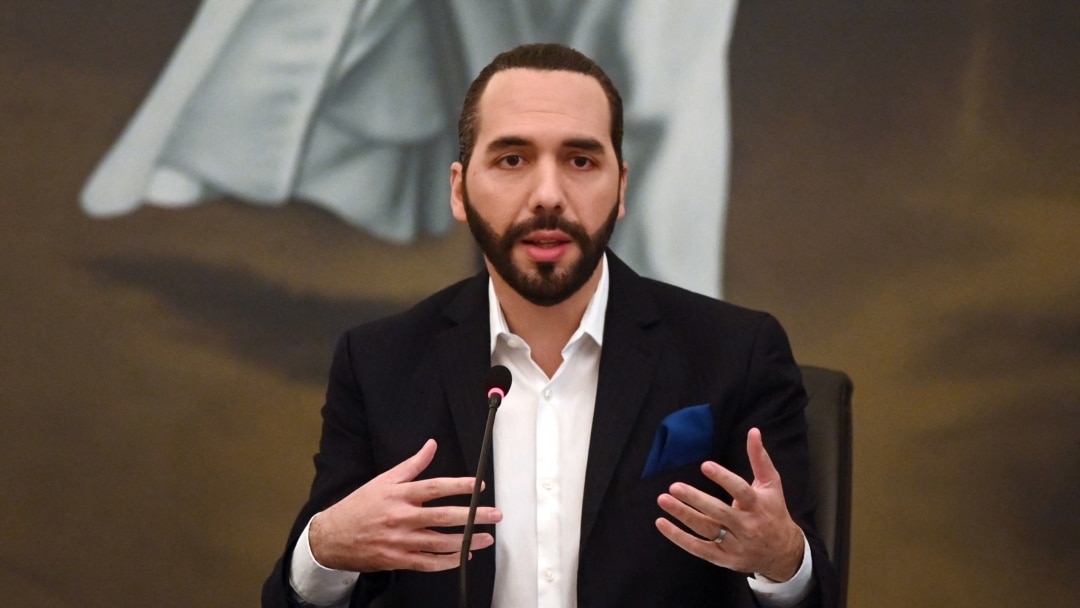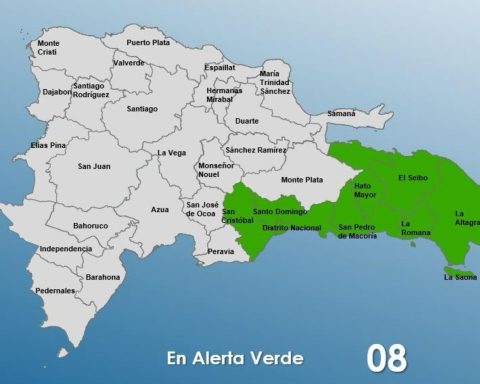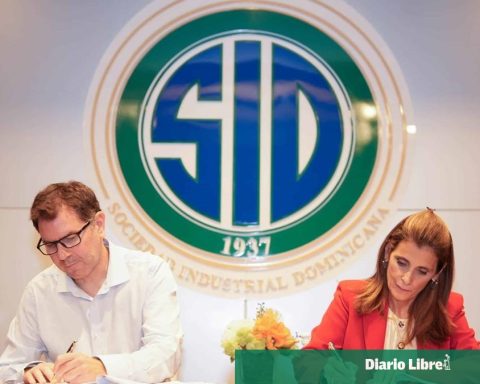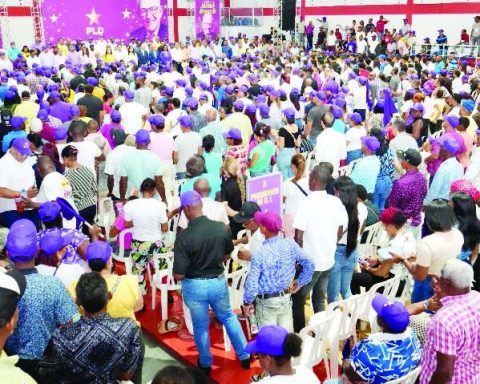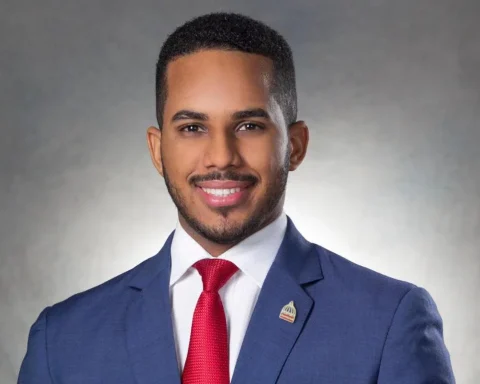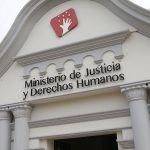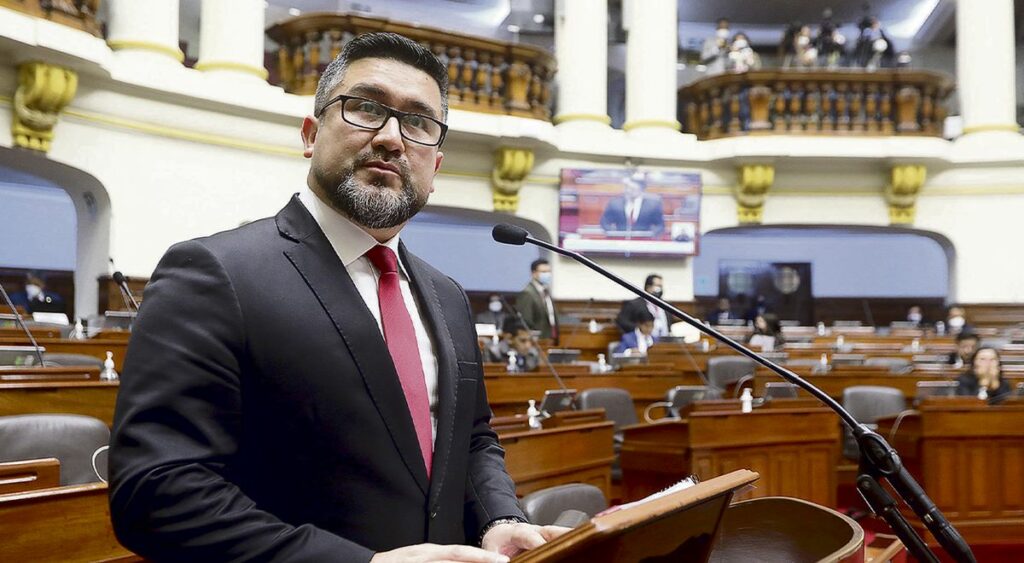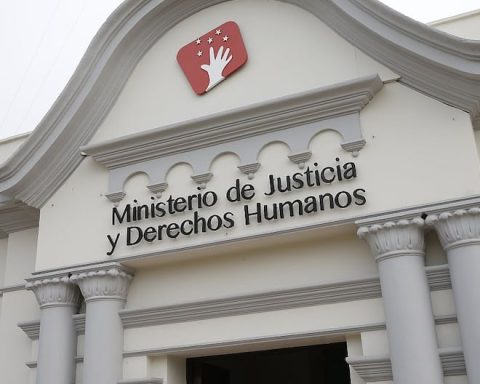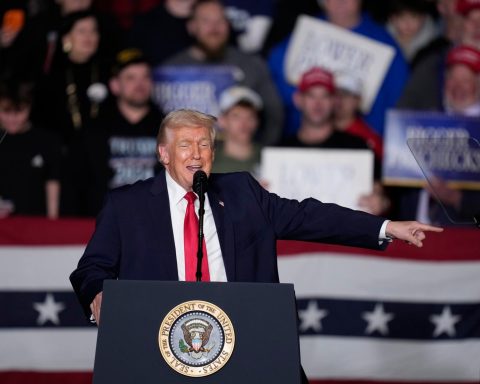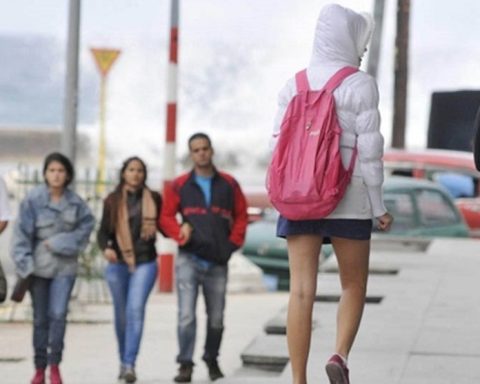San Salvador, (EFE).- The announcement by the President of El Salvador, Nayib Bukelethat he will seek immediate re-election in the 2024 elections, has been found this Friday with accusations of illegality and with the support of the vice president, Félix Ulloa, who in a draft constitutional reform has proposed to prohibit it.
The possibility that Bukele be re-elected for a second consecutive term in 2024 was opened last September, when a questioned Constitutional Chamber of the Supreme Court of Justice modified a criterion on the subject.
Before this resolution, whoever held the Presidency had to wait 10 years after the end of his term.
Now, Bukele is the first president of the Salvadoran democratic stage who will try to be re-elected, since this situation has not occurred since the time of the military dictatorship.
THE “VIOLENT” ANNOUNCEMENT OF THE CONSTITUTION
For Celia Medrano, former candidate for the Executive Secretariat of the Inter-American Commission on Human Rights (IACHR), the announcement is not a surprise and she warns that it goes against what is established in the Constitution.
“It’s not a surprise. Violating constitutional limitations has been the daily practice of the power groups that control CAPRES (Presidential House) », he told Efe in reaction to the announcement.
He pointed out that Bukele’s irruption to Congress with military and armed soldiers in February 2020, known as 9F, and the dismissal of constitutionalist judges in a widely criticized process in 2021 “have prepared the way for re-election.”
In Medrano’s opinion, there is “total control of the entire State,” so “a discussion of whether the unconstitutionality of reelection is supported by the population or not is useless.”
“With the consolidation of all control, it matters little if popularity levels would drop or not,” he stressed.
He recalled that the articles of the Constitution that establish alternation in power and that the presidential term establishes that a president cannot continue “not one more day” after serving 5 years.
ENABLING WITHOUT “LEGITIMACY”
In the opinion of Jonatan Sisco, a lawyer for the Cristosal humanitarian organization, the magistrates who issued the ruling that opens the possibility of immediate reelection are de facto and do not have “democratic legitimacy of origin or exercise, so it has no legal value.” .
After the ruling that enables re-election was made known, different voices questioned its legality, including the United States condemned it and pointed out to the judges of being “loyal to the Executive body.”
“The Constitution is so clear in the prohibition of immediate re-election that the mere fact of promoting re-election is even penalized with the loss of citizenship rights,” he indicated.
For Sisco, the magistrates who modified the criteria for reelection acted “outside the framework of their constitutional powers.”
He explained that the ruling was issued in a process unrelated to this controversy, since it was a case in which the “loss of citizenship” was requested and not a ruling on re-election.
The magistrates decreed that the prohibition of reelection is for those who have exercised the Presidency for two consecutive periods.
On the other hand, Sisco indicated that if Bukele registers as a candidate in the Supreme Electoral Tribunal “he is obliged to disqualify the president because a cause of disqualification weighs on him.”
COUNTRY RISK PROFILE WOULD GO UP
For the Salvadoran economist from the Central American Institute for Fiscal Studies (Icefi) Ricardo Castaneda, Bukele’s announcement “generates greater uncertainty, because there is a breaking of the rules of the game and this, obviously, worries investors.”
“Investors will ask themselves: What guarantees do I have of going to invest in a country if at a given moment they can also break the rules of the game for me if the president himself is doing it?” he told Efe by telephone.
In addition, he pointed out that the decision to seek reelection “is announced the same day that Fitch (Fitch Ratings) lowers the risk rating, and that risk rating basically places El Salvador with a high probability of default.”
The risk measurement agency Fitch Ratings reported on Thursday that it downgraded El Salvador’s long-term foreign currency issuer default rating (IDR) and noted that the liquidity situation is “serious” before payment. Eurobond January 2023.
“The announcement can cause the country’s risk profile to continue to be extremely high and (that there are) limitations in (the) access to financing and this, obviously, can have implications not only for the Government, but also for citizens,” the economist explained.
Castaneda added that “a political crisis, of democracy, sooner or later results in an economic crisis and the economic and financial situation of the country is already delicate and with this type of announcement the situation can still become much more complex.”
THE VICE PRESIDENT SUPPORTS BUKELE
The vice president, Félix Ulloa, applauded this Friday during a television interview Bukele’s decision and said that the arguments against “have no constitutional basis.”
“There is no prohibition for President Nayib Bukele to register as a candidate,” he added and indicated that six months before June 1, 2024 “he must stop exercising the Presidency,” as established by the Constitutional Chamber.
Ulloa described as “erroneous” and “biased” the interpretation of the magistrates that indicated the prohibition of the immediate re-election of 2014.
The Salvadoran vice president was appointed by Bukele to prepare a constitutional reform and the draft establishes that a president must wait 5 years to seek the position again.
Before becoming president, Bukele affirmed that “in El Salvador the same person cannot be president twice in a row.”
After reaching the Salvadoran Presidency in 2019, Bukele described Juan Orlando Hernández and Daniel Ortega as “dictators”, who were able to be re-elected in Honduras and Nicaragua, respectively, thanks to resolutions of constitutional courts.
